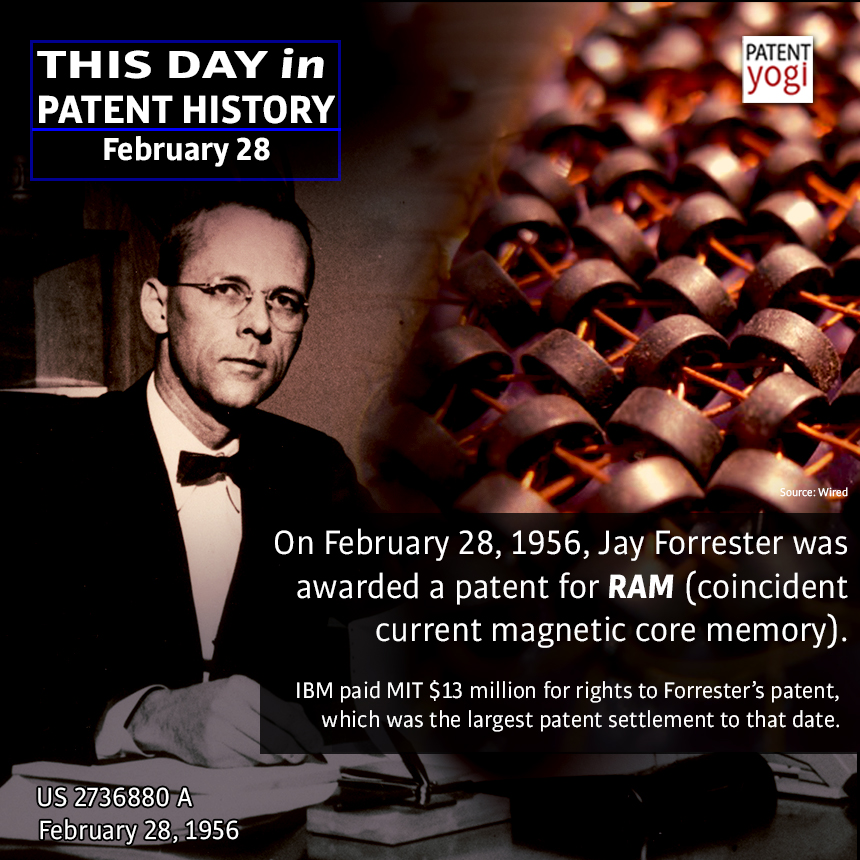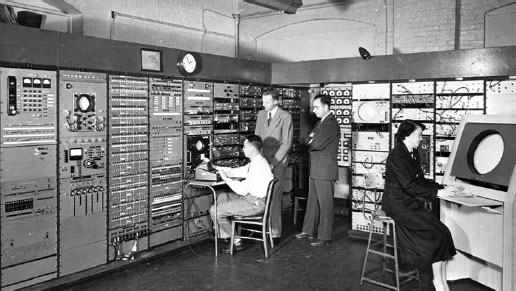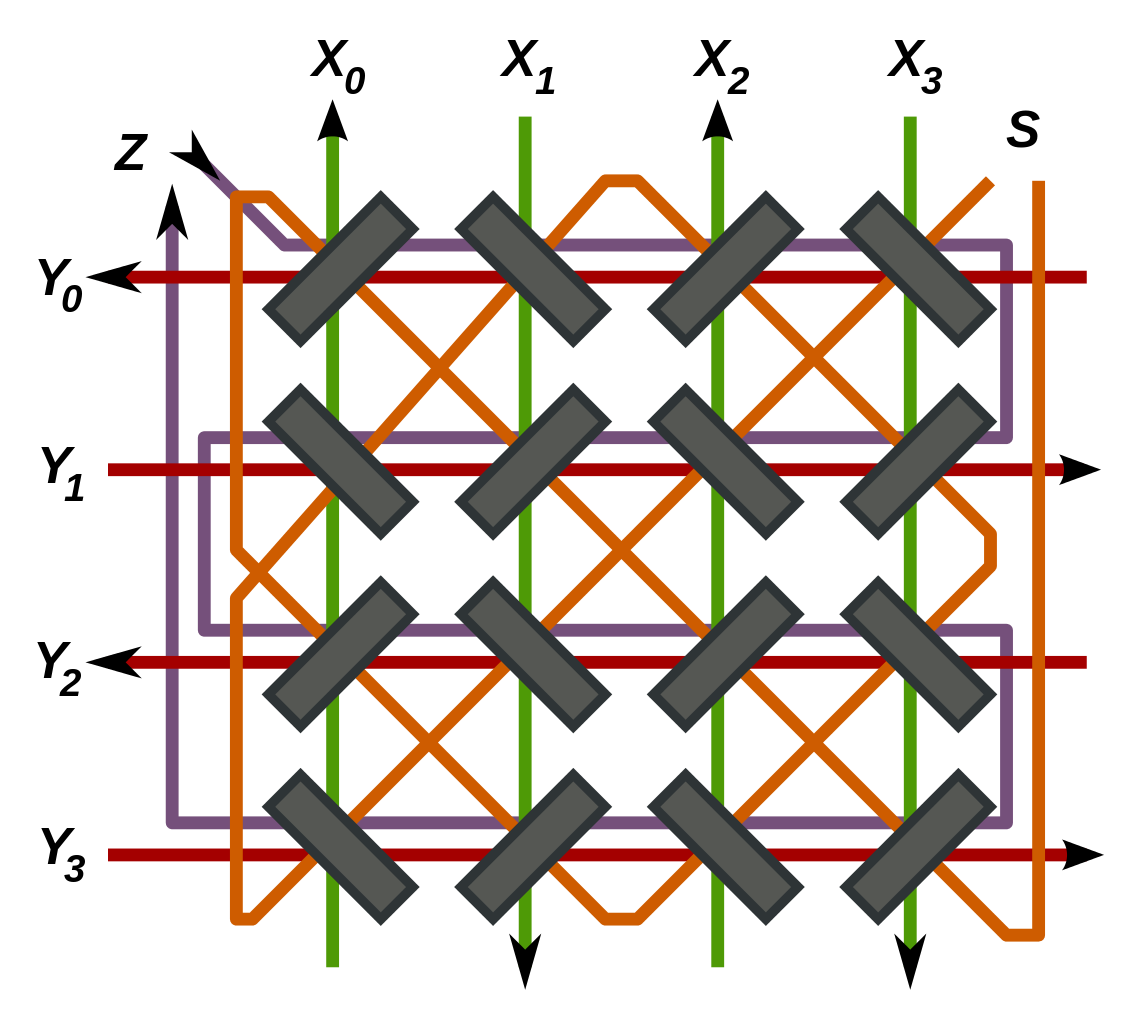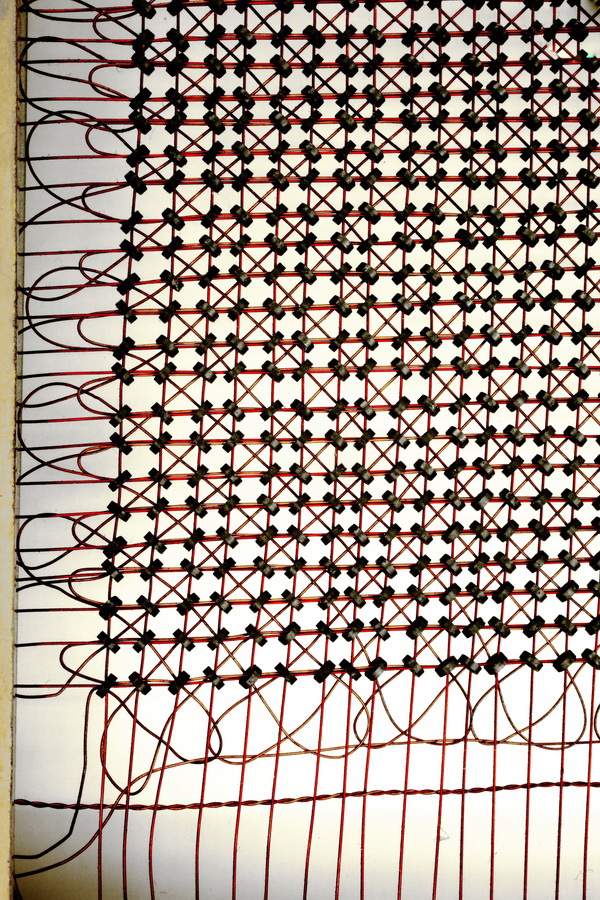
On February 28, 1956, Jay Forrester was awarded a patent for his coincident current magnetic core memory. Forrester’s invention became the standard memory device for digital computers until supplanted by solid state (semiconductor) RAM in the mid-1970s.

The magnetic-core, comprised a wire mesh of ferrite rings and metal wire, created a location where binary information could be recorded and retrieved magnetically. The ability to pinpoint specific intersections or addresses within the core rings, from which information could be stored and then recalled at random, created an unparalleled innovation in computing. The computer’s central processing unit and its memory of stored data, procedures and programs, could be operated interactively. This was the first Random-access memory.

In 1964, after years of litigation, IBM paid MIT $13 million for rights to Forrester’s patent, which was the largest patent settlement to that date. For this invention, he received the IEEE Computer Pioneer Award, was made a Fellow of the Computer History Museum and was inducted into the Operational Research Hall of Fame.

Forrester is also the founder of system dynamics, which deals with the simulation of interactions between objects in dynamic systems.
Publication number: US2736880 A
Patent Title: Multicoordinate digital information storage device
Publication type: Grant
Publication date: Feb 28, 1956
Filing date: May 11, 1951
Priority date: May 11, 1951
US2736880
Sources: Jay W. Forrester; Wikipedia; Magnetic Core Memory
